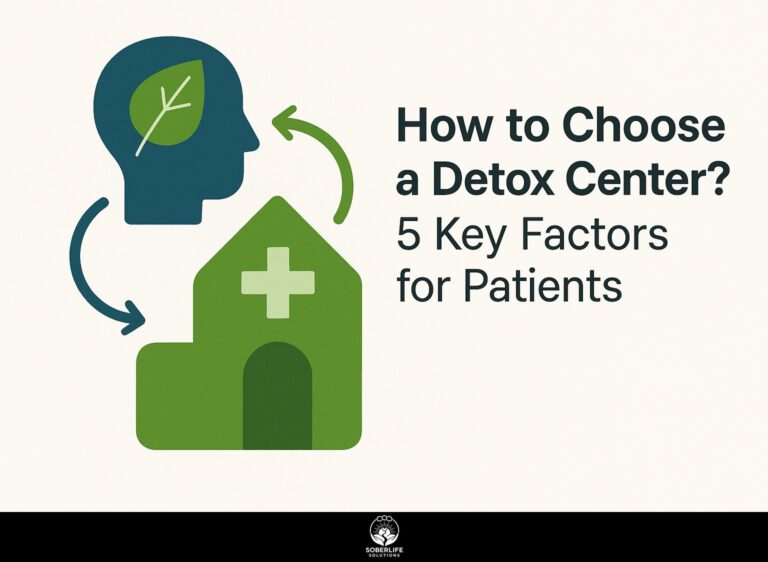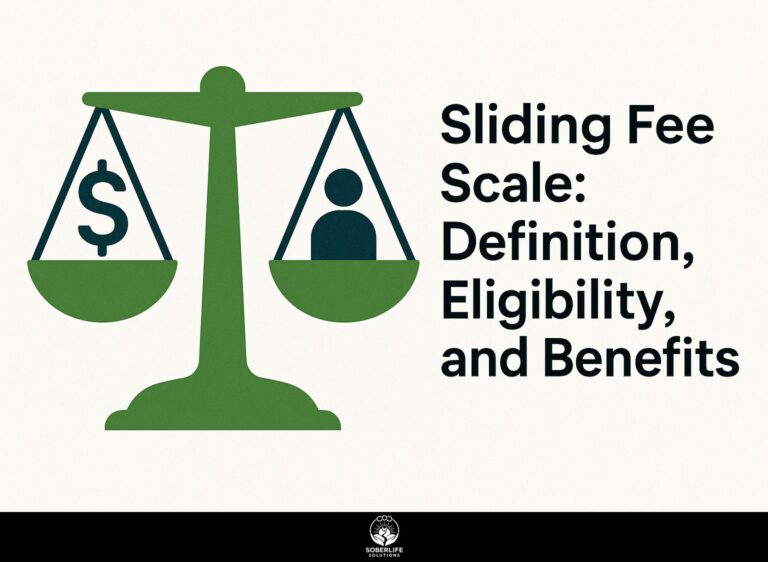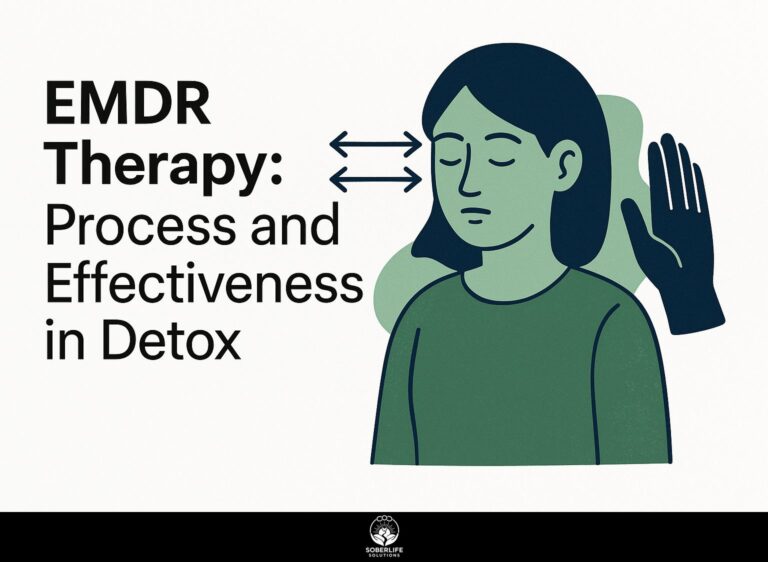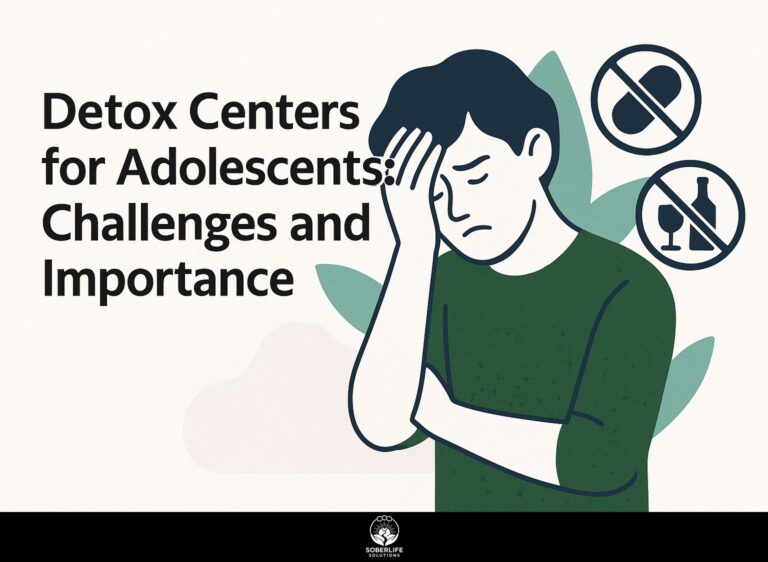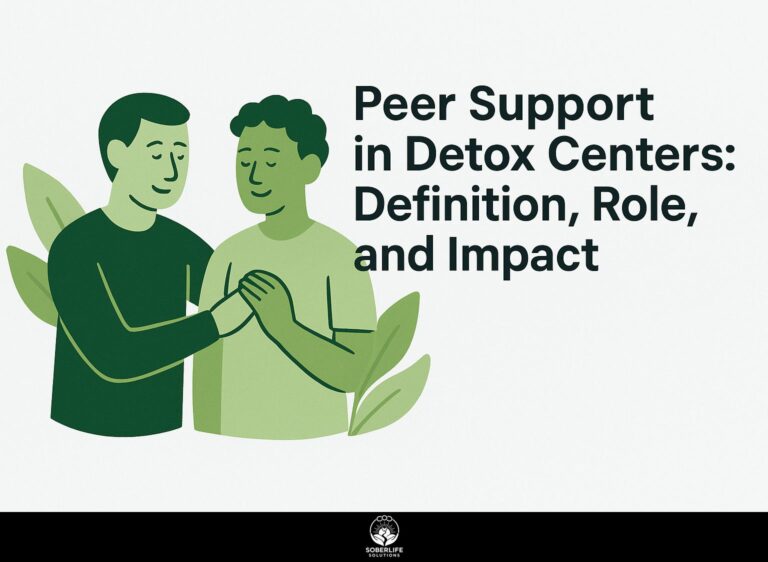Role of Detox Centers in Alcoholism Recovery: Overview
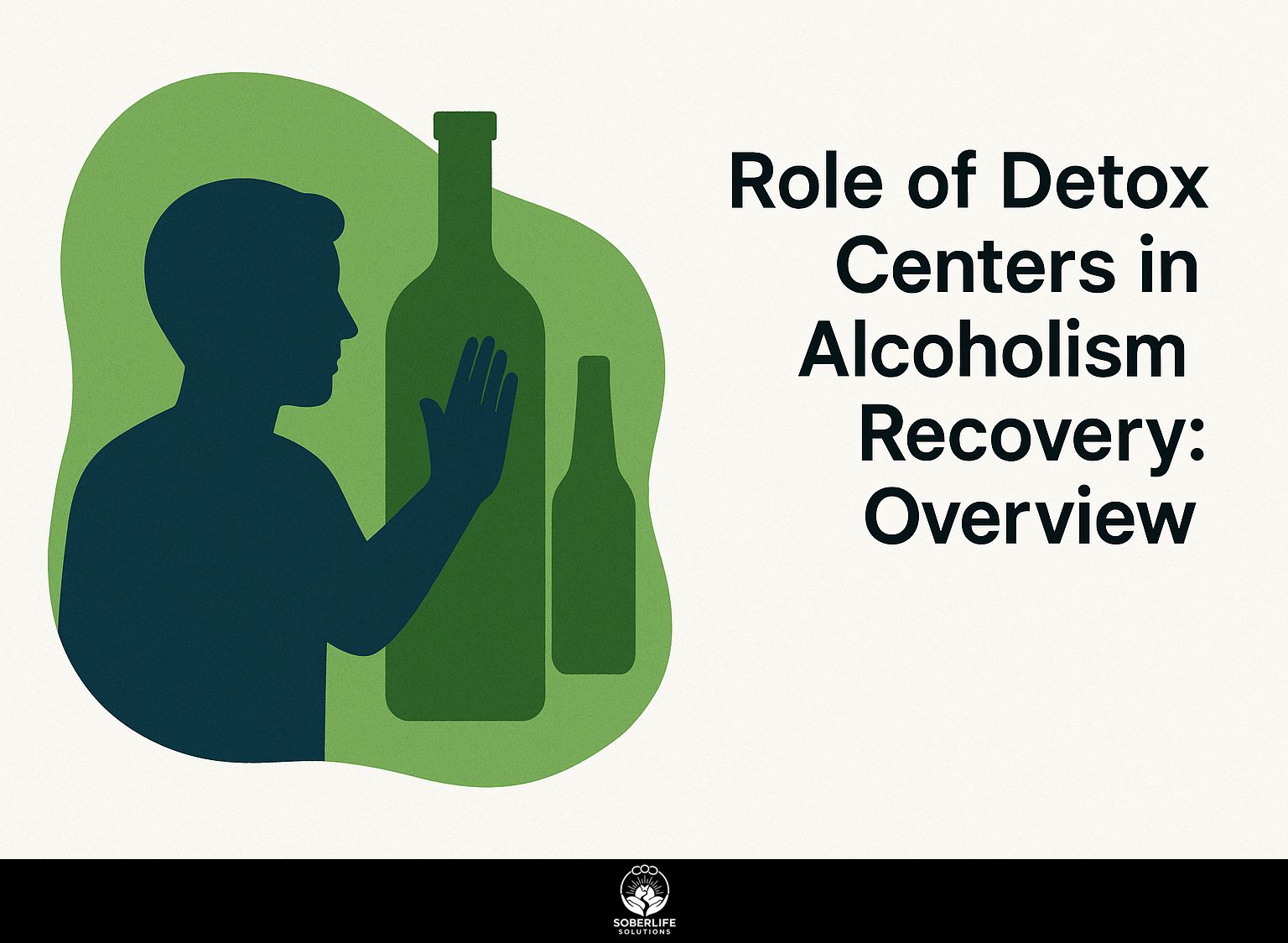
Alcohol detoxification is an important initial step in overcoming alcoholism, leading to a state without substances. Detox centers are important in this process, providing medical care and help to handle withdrawal symptoms. By providing a safe and structured environment, these centers lay the foundation for long-term treatment and recovery. This article will discuss how detox centers help people recover, emphasizing their important services and advantages.
Key Takeaways:
Understanding Alcoholism
Alcoholism, identified as a serious alcohol use disorder, impacts about 14.5 million adults in the United States.
This condition shows itself through various signs, such as needing more to get the same effect, experiencing withdrawal symptoms, and losing interest in activities previously liked.
According to the National Institute on Alcohol Abuse and Alcoholism, nearly 95,000 people die from alcohol-related causes annually, a statistic corroborated by data from the CDC.
To assess the impact of alcohol addiction, experts use the Addiction Severity Index, which evaluates various areas of life influenced by substance use. If interested, you might appreciate learning about key considerations for selecting an effective alcohol treatment.
The health risks associated with alcohol dependence are significant, including liver disease, cardiovascular issues, and heightened cancer risk, underscoring the urgent need for effective intervention.
The Importance of Detox in Recovery
Detoxification is an essential part of recovery and can impact the success of ongoing treatment.
The detox process helps reduce withdrawal symptoms, steady the body, and let individuals start their recovery process, with medically supervised detox being particularly effective in managing symptoms of moderate and severe alcohol withdrawal (as highlighted in recent findings from UpToDate).
Common strategies include:
- Medically supervised detox, which provides medications to manage symptoms;
- Outpatient detox, which offers flexibility but less supervision;
- Methods that include both diet and physical activity.
Each method’s relevance depends on the individual’s substance use, health status, and support system. For example, someone with a serious addiction might benefit most from a medical facility, while others might do well in an outpatient program that offers counseling and detox. A hidden gem in recovery can be found in understanding how [setting boundaries in recovery](https://soberlifesolutions.com/setting-boundaries-in-recovery/) enhances the detox process and long-term success.
What is a Detox Center?
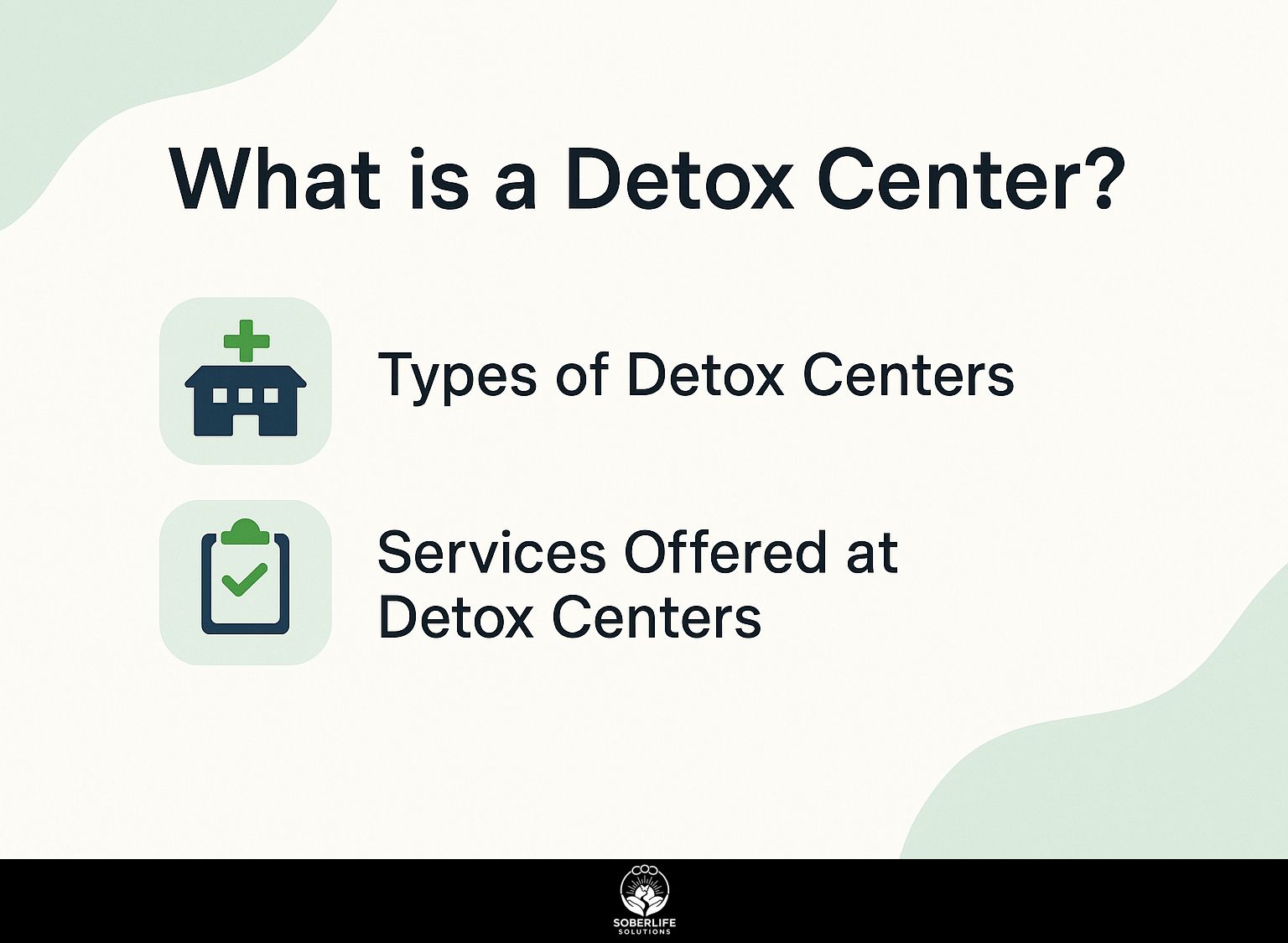
Detox centers are places where people can get medical help while they stop using alcohol.
Types of Detox Centers
Detox centers can be categorized into inpatient and outpatient programs, each serving distinct needs based on patient characteristics.
Inpatient programs offer round-the-clock medical care for people with serious withdrawal symptoms who need continuous monitoring. They typically involve a structured environment to stimulate recovery, often lasting 30 to 90 days.
Outpatient programs allow patients to attend appointments while managing daily responsibilities. These programs are ideal for people with milder symptoms.
Research from the Substance Abuse and Mental Health Services Administration shows that inpatient treatment is 20% more effective than outpatient options for individuals with serious dependencies. Make your choice based on how serious it is and your daily habits.
Services Offered at Detox Centers
Detox centers offer services like medical supervision, therapy sessions, and detox help to support a safe and successful recovery.
These services are combined to provide a complete treatment plan. For example, medical monitoring helps manage withdrawal symptoms safely, while counseling sessions address the psychological aspects of addiction.
Facilities often collaborate with community resources, like local support groups, enhancing recovery opportunities beyond the center. Detox centers use these elements to help people complete detox and learn important skills for maintaining sobriety long-term. For those considering their choices, understanding how to choose a detox center by evaluating key factors can be a critical step.
Role of Detox Centers in Recovery Process
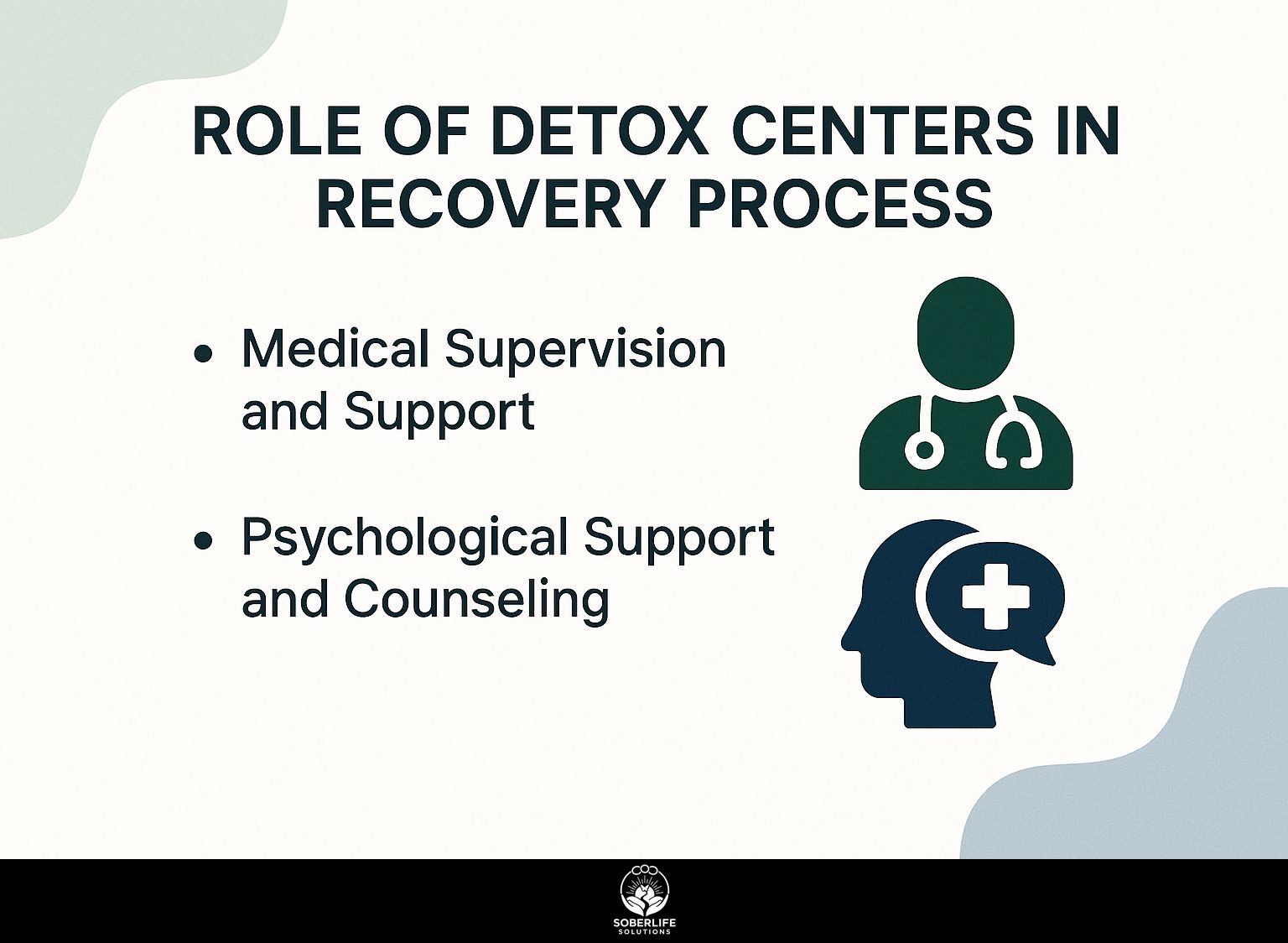
Detox centers are important in helping people recover by offering necessary medical care and mental health support.
Medical Supervision and Support
Having doctors oversee detox centers is important for handling withdrawal symptoms. They often use medications like benzodiazepines to reduce risks.
Healthcare professionals must closely monitor withdrawal symptoms such as tremors, anxiety, and agitation. Checking symptoms regularly helps find out how serious they are and decide the right amount of medicine to use.
For instance, the Clinical Institute Withdrawal Assessment for Alcohol (CIWA-Ar) scale is frequently employed to guide treatment decisions. In serious situations such as delirium tremens, quick treatment and larger amounts of benzodiazepines are needed, along with additional care.
A structured procedure makes sure patients get quick and suitable replies, reducing problems and improving recovery results.
Psychological Support and Counseling
Psychological support, including counseling sessions and peer support services, is integral to the detox process, addressing underlying issues of psychological dependence.
Therapeutic interventions, such as cognitive behavioral therapy (CBT), play a critical role in detox. According to Verywell Mind, CBT helps individuals identify and change negative thought patterns related to substance use.
For example, a counselor might guide a client in recognizing triggers and developing coping strategies. Group therapy helps create a feeling of togetherness and shared experiences, which can help lessen loneliness.
Regular check-ins with a counselor can further support recovery by providing accountability and strategies to prevent relapse. You can add journaling and mindfulness exercises to sessions to help build emotional strength.
Benefits of Detox Centers
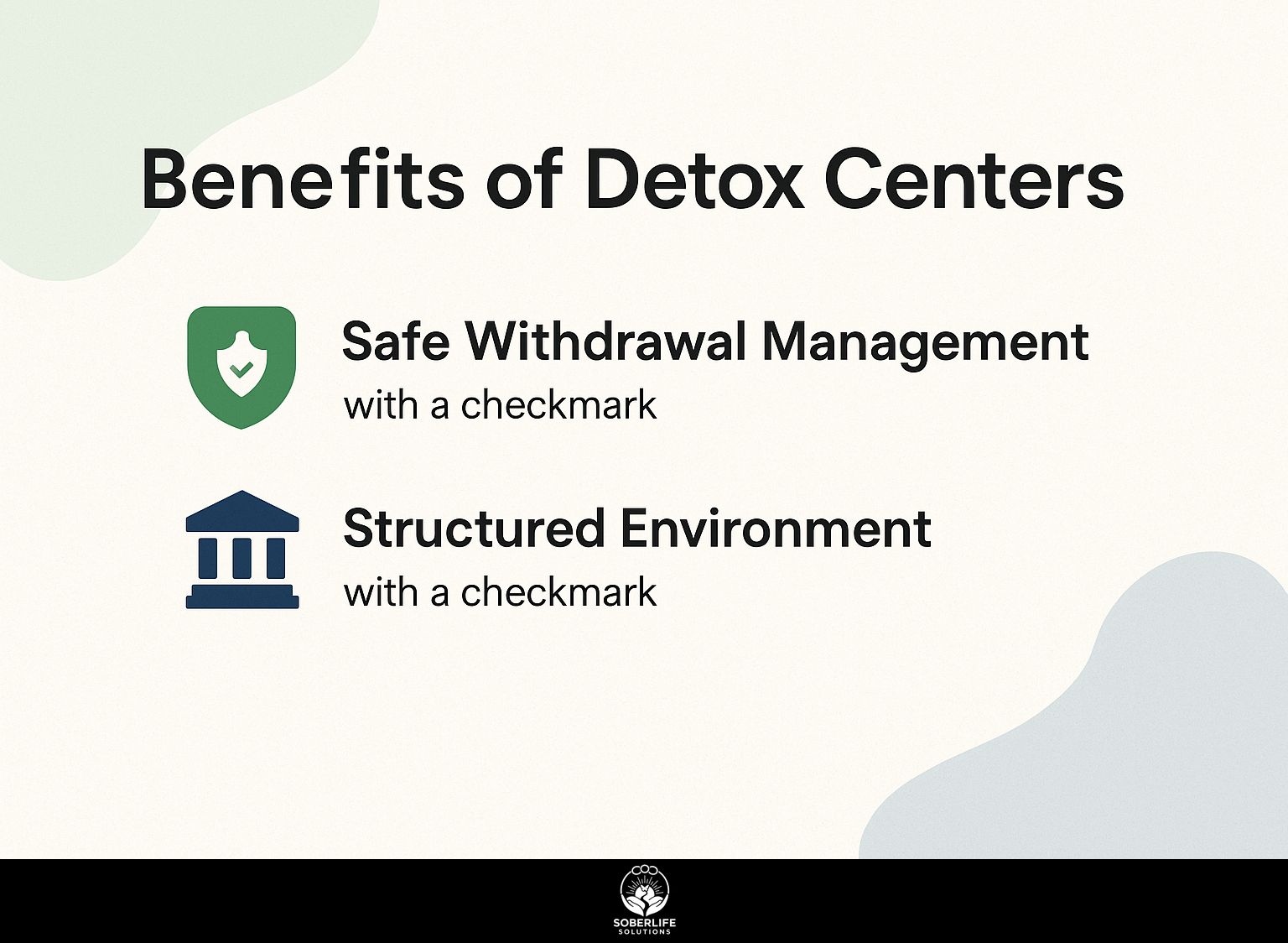
Detox centers provide many benefits, such as safe withdrawal management and a structured setting that supports recovery.
Safe Withdrawal Management
Effective withdrawal management in detox centers minimizes the risks associated with alcohol withdrawal syndrome, ensuring patient safety throughout the detoxification duration.
To maintain safety, detox centers employ a range of practices. Seeing doctors regularly is important; they frequently use the Clinical Institute Withdrawal Assessment for Alcohol (CIWA-Ar) to monitor symptoms every hour.
Interventions might involve giving benzodiazepines to reduce anxiety and stop seizures, adjusted for each patient’s specific needs. Nutritional help is provided to fix any lack of nutrients, helping the body heal fully.
Regular communication helps medical staff quickly change treatment plans as the patient’s condition changes.
Structured Environment
Having a well-organized setting in detox centers is important for staying committed to recovery and provides routines that help patients feel safe.
Creating daily plans for activities is important. This can cover morning workouts, therapy appointments, meal times, and group talks, helping create a feeling of routine.
Joining recovery meetings like AA or NA improves community support. Consistency is key; for example, starting each day with meditation can set a positive tone.
Patients should also maintain a personal journal, allowing reflection on their progress and feelings during recovery. These elements increase involvement and help patients create new, healthier habits.
Challenges Faced in Detox
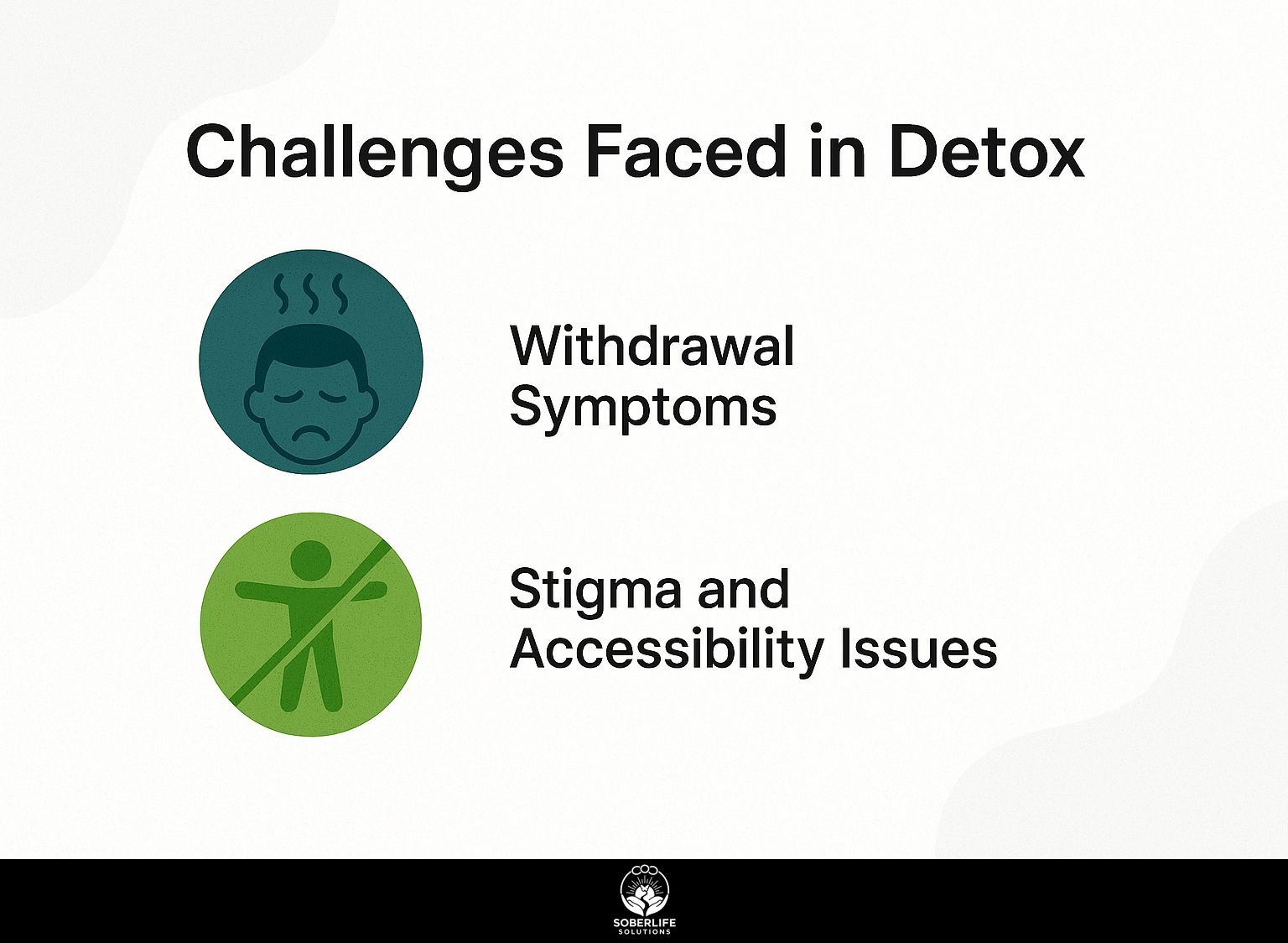
Even with their advantages, detox centers encounter various problems that can affect successful treatment and recovery.
Withdrawal Symptoms
Withdrawal symptoms can be very serious and include anxiety, shaking, and seizures, requiring close medical supervision in detox centers.
Along with these, individuals may experience nausea, sweating, and hallucinations.
Effective intervention strategies include administering medications such as benzodiazepines to mitigate anxiety and decrease the risk of seizures. Creating a helpful setting is important; for example, regularly checking important health signs and staying hydrated can control symptoms.
Cognitive-behavioral therapy (CBT) is another effective strategy, offering psychological support.
Doctors and support groups play an important role in handling withdrawal by ensuring it is safe and suited to each individual.
Stigma and Accessibility Issues
Negative views on addiction and lack of treatment centers can greatly prevent people from getting detox services.
This stigma stops people from asking for help and makes it harder to get into detox centers. Some people might worry about being judged by friends or family, which can lead them to skip needed medical care.
Solutions like community outreach programs and educational workshops can help dismantle these barriers. Local organizations could host sessions that emphasize the importance of detoxification and the health benefits of recovery.
Setting up support groups in neighborhoods can give people a safe place to talk about their experiences, helping to build awareness and decrease stigma.
Frequently Asked Questions
What is the role of detox centers in alcoholism recovery?
Detox centers are important in helping people recover from alcoholism by offering a safe place for individuals to stop using alcohol. They also offer medical support and supervision to manage withdrawal symptoms.
How do detox centers help in the overall recovery process?
In addition to detoxification, detox centers offer therapy, counseling, and support groups to help individuals address the underlying causes of their alcoholism and develop coping strategies for long-term recovery.
Who should think about getting help from a detox center for alcohol problems?
People with serious alcohol addiction should think about getting help from a detox center. These facilities are equipped to handle medical emergencies and provide round-the-clock support during the detox process.
What makes detox centers different from other treatment programs for alcoholism?
Detox centers specialize in managing the physical and psychological effects of alcohol withdrawal. Unlike other treatment programs, they focus solely on detoxification and do not offer long-term rehabilitation services.
Do I need to complete detox before starting a long-term alcoholism treatment program?
Yes, detox serves as the first step in alcoholism treatment and is necessary to rid the body of alcohol and manage withdrawal symptoms. After completing detox, individuals can transition to a long-term treatment program for ongoing support and recovery.
Are detox centers just for people with serious alcohol problems?
Detox centers are available to support people dealing with alcohol problems, whether the issue is minor or major. They offer a safe and helpful place for people to detox and begin their recovery from alcoholism, no matter how severe their condition is.

